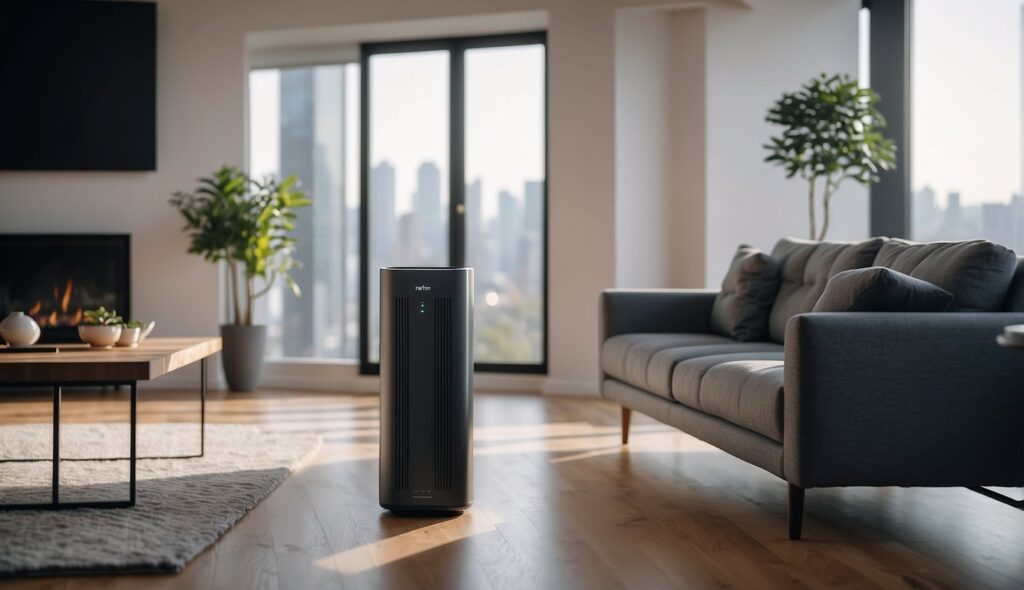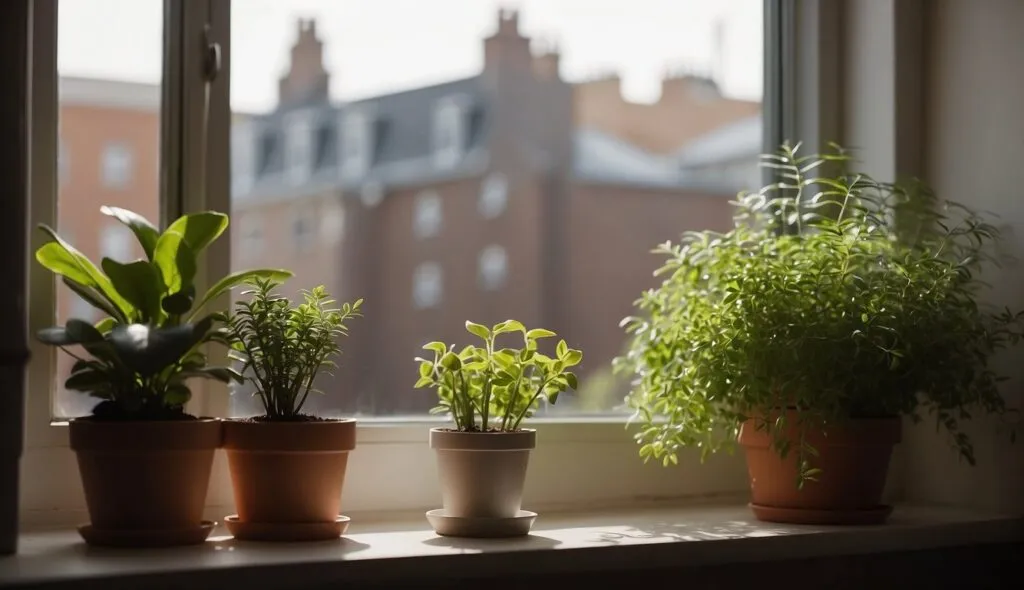Improving indoor air quality is a key concern for apartment dwellers. With limited ventilation, pollutants such as dust, mold, and pet dander can accumulate quickly, leading to health issues and allergies. Fortunately, there are several air purification methods that can help improve the air quality in your apartment.
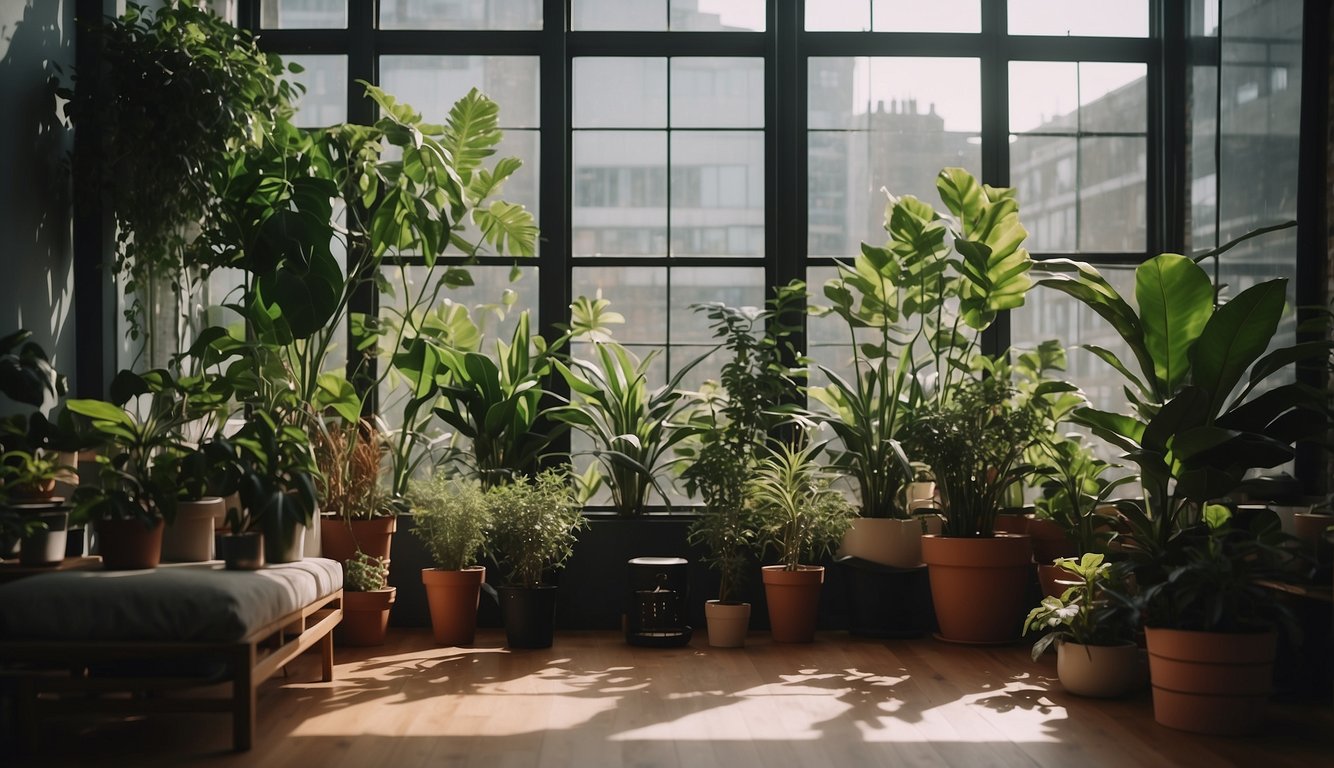
One of the most effective ways to purify the air in your apartment is by using an air purifier. Air purifiers are designed to remove pollutants from the air, including allergens, smoke, and volatile organic compounds (VOCs). There are several types of air purifiers available, including HEPA filters, activated carbon filters, and ionizers. Understanding how each type of air purifier works can help you select the right one for your apartment.
Another way to improve indoor air quality is by using natural air purifiers. Plants such as spider plants, peace lilies, and Boston ferns can help remove pollutants from the air. Additionally, opening windows and using natural ventilation can help improve indoor air quality. However, it is important to note that natural air purifiers may not be as effective as air purifiers that use advanced filtration systems.
Table of Contents
Key Takeaways
- Air purifiers are an effective way to remove pollutants from the air in your apartment.
- Understanding the different types of air purifiers can help you select the right one for your needs.
- Natural air purifiers such as plants and natural ventilation can also help improve indoor air quality.
Understanding Air Purifiers
Air purifiers are devices that help improve indoor air quality by removing pollutants and allergens from the air. They work by filtering the air that passes through them and trapping harmful particles. In this section, we will discuss the different types of filters and air cleaning technologies used in air purifiers.
Types of Filters
One of the most important components of an air purifier is the filter. Filters are responsible for trapping pollutants and allergens in the air. There are several types of filters used in air purifiers, including:
HEPA Filters: HEPA (High-Efficiency Particulate Air) filters are the most common type of filter used in air purifiers. They are highly effective in removing small particles from the air, such as pollen, pet dander, and dust mites. True HEPA filters can remove up to 99.97% of particles as small as 0.3 microns.
Activated Carbon Filters: Activated carbon filters are effective in removing odors and gases from the air. They work by adsorbing the molecules of pollutants and trapping them in the filter. Activated carbon filters are often used in conjunction with HEPA filters to provide comprehensive air cleaning.
Air Cleaning Technologies
In addition to filters, air purifiers also use various air cleaning technologies to improve indoor air quality. Some of the most common air cleaning technologies include:
Ionizers: Ionizers work by emitting negatively charged ions into the air. These ions attach to positively charged particles, such as dust and pollen, causing them to become too heavy to remain airborne. The particles then fall to the ground, where they can be easily cleaned up.
UV-C Light: UV-C light is used in air purifiers to kill bacteria and viruses. When air passes through the purifier, it is exposed to UV-C light, which destroys the DNA of microorganisms, rendering them harmless.
Ozone Generators: Ozone generators work by emitting ozone into the air. Ozone is a highly reactive gas that can oxidize pollutants and destroy odors. However, ozone can also be harmful to humans and pets, so it is important to use ozone generators with caution.
In conclusion, air purifiers are an effective way to improve indoor air quality. By using filters and air cleaning technologies, they can remove pollutants and allergens from the air, making it safer and healthier to breathe. When choosing an air purifier, it is important to consider the type of filter and air cleaning technology used to ensure that it meets your specific needs.
Benefits of Improved Air Quality
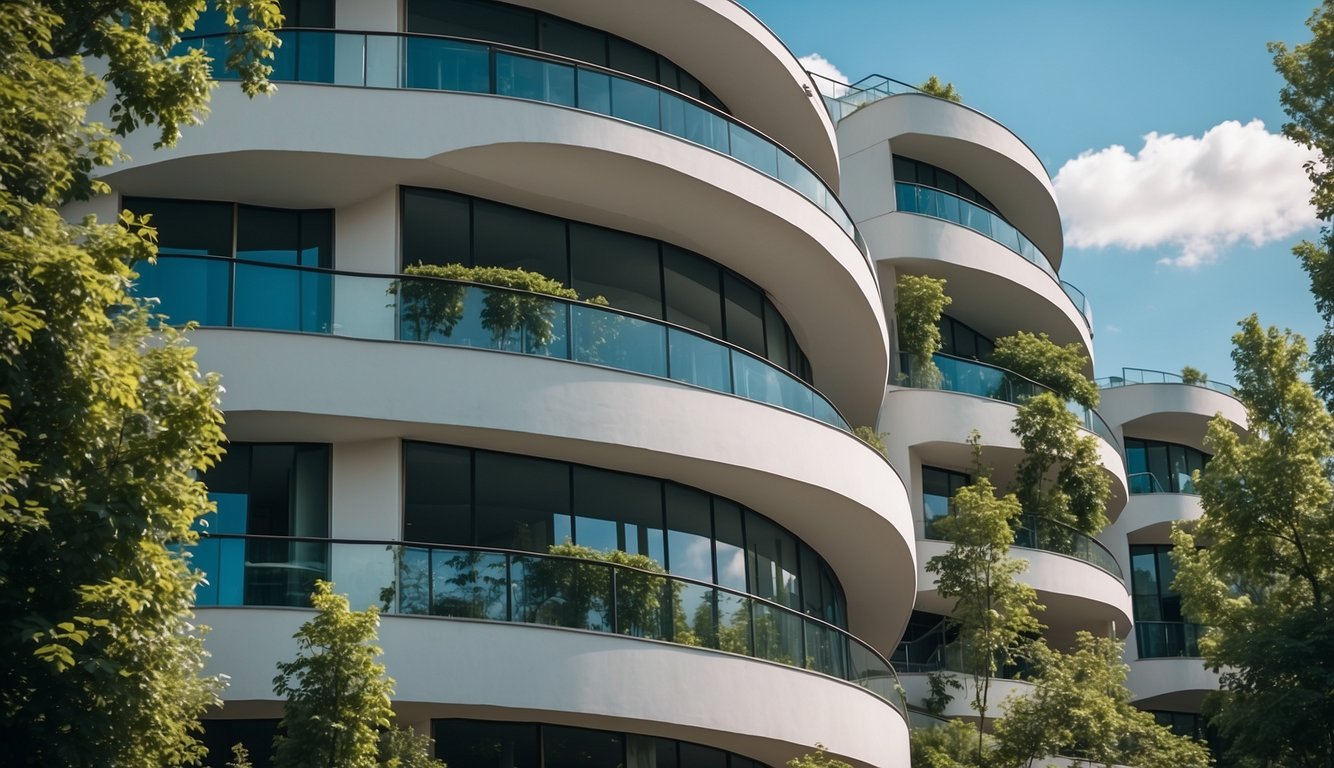
Improving the air quality in your apartment can have numerous benefits for both your health and the environment. In this section, we will discuss the benefits of improved air quality in terms of health and wellness, as well as the environmental impact.
Health and Wellness
Indoor air quality can have a significant impact on our health, and poor air quality can contribute to a range of health problems. These health problems can include headaches, fatigue, allergies, and respiratory issues such as asthma. By improving the air quality in our apartments, we can reduce our exposure to pollutants and allergens, which can help to alleviate these health problems.
In addition, improved air quality can also have a positive impact on our productivity and overall well-being. When we breathe clean air, we are more alert, focused, and energized, which can help us to be more productive and feel better overall.
Environmental Impact
Improving the air quality in our apartments can also have a positive impact on the environment. By reducing our use of air conditioning and heating systems, we can reduce our energy consumption and greenhouse gas emissions. In addition, by using air purifiers and filters, we can reduce the amount of pollutants and allergens that are released into the air, which can have a positive impact on the environment.
Overall, improving the air quality in our apartments can have numerous benefits for both our health and the environment. By taking steps to improve the air quality in our living spaces, we can improve our health and well-being, reduce our impact on the environment, and create a more comfortable and enjoyable living environment.
Selecting the Right Air Purifier
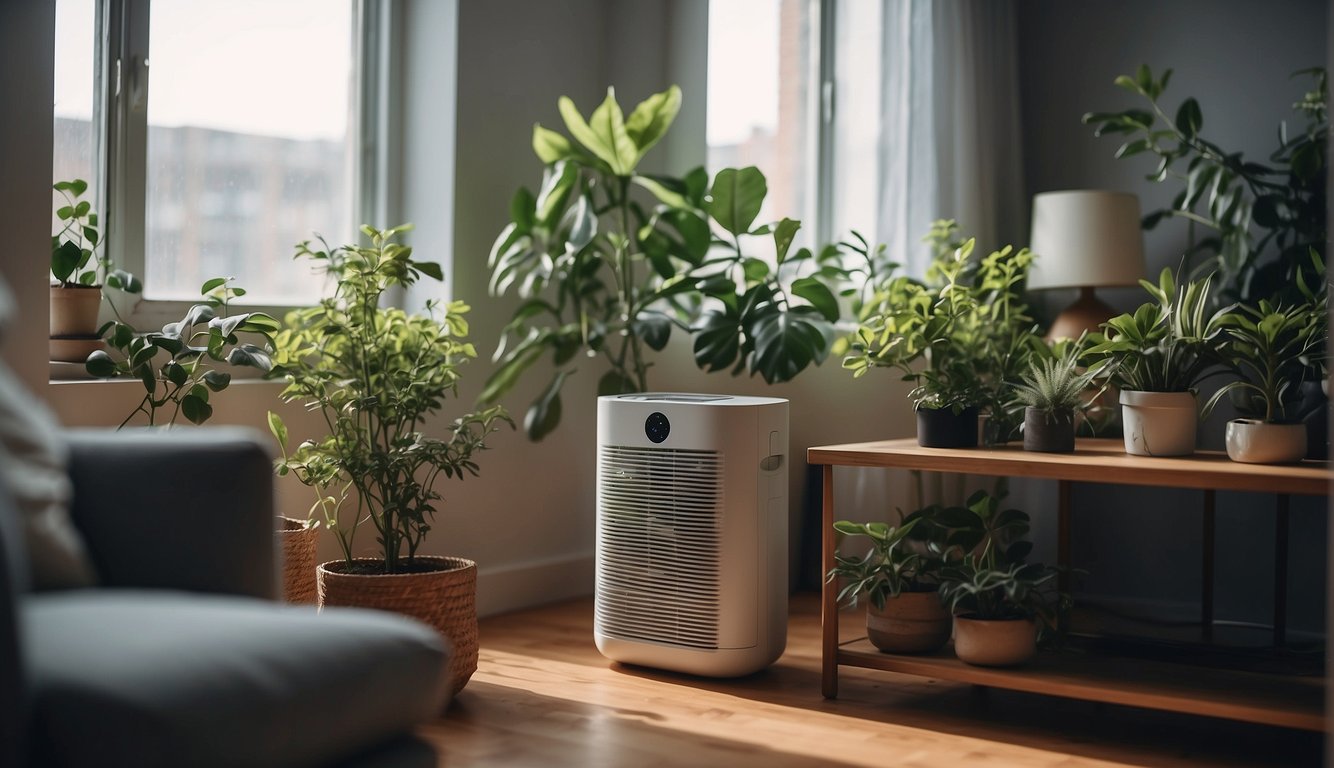
When selecting an air purifier for your apartment, there are several factors to consider. We recommend considering the following factors:
Air Changes per Hour (ACH)
Air Changes per Hour (ACH) is the number of times an air purifier can filter the air in a room in one hour. ACH is an important factor to consider when selecting an air purifier for your apartment. We recommend selecting an air purifier with a minimum of 4 ACH.
Clean Air Delivery Rate (CADR)
Clean Air Delivery Rate (CADR) measures the amount of clean air an air purifier can deliver per minute. CADR is an important factor to consider when selecting an air purifier for your apartment. We recommend selecting an air purifier with a CADR that is at least two-thirds the size of your room.
Price
Price is an important factor to consider when selecting an air purifier for your apartment. We recommend selecting an air purifier that fits within your budget. Keep in mind that the most expensive air purifier may not always be the best option for your needs.
Square Feet
The square footage of your apartment is an important factor to consider when selecting an air purifier. We recommend selecting an air purifier that is appropriate for the size of your apartment. Most air purifiers will indicate the maximum square footage they can effectively purify.
Noise Level
Noise level is an important factor to consider when selecting an air purifier for your apartment. We recommend selecting an air purifier with a noise level that is appropriate for your needs. Most air purifiers will indicate their noise level in decibels (dB).
Maintenance
Maintenance is an important factor to consider when selecting an air purifier for your apartment. We recommend selecting an air purifier that is easy to maintain. This includes easy-to-clean filters and simple maintenance instructions.
Filter Replacement
Filter replacement is an important factor to consider when selecting an air purifier for your apartment. We recommend selecting an air purifier with easy-to-replace filters. Most air purifiers will indicate how often their filters need to be replaced.
By considering these factors, you can select the right air purifier for your apartment.
Maintaining Your Air Purifier
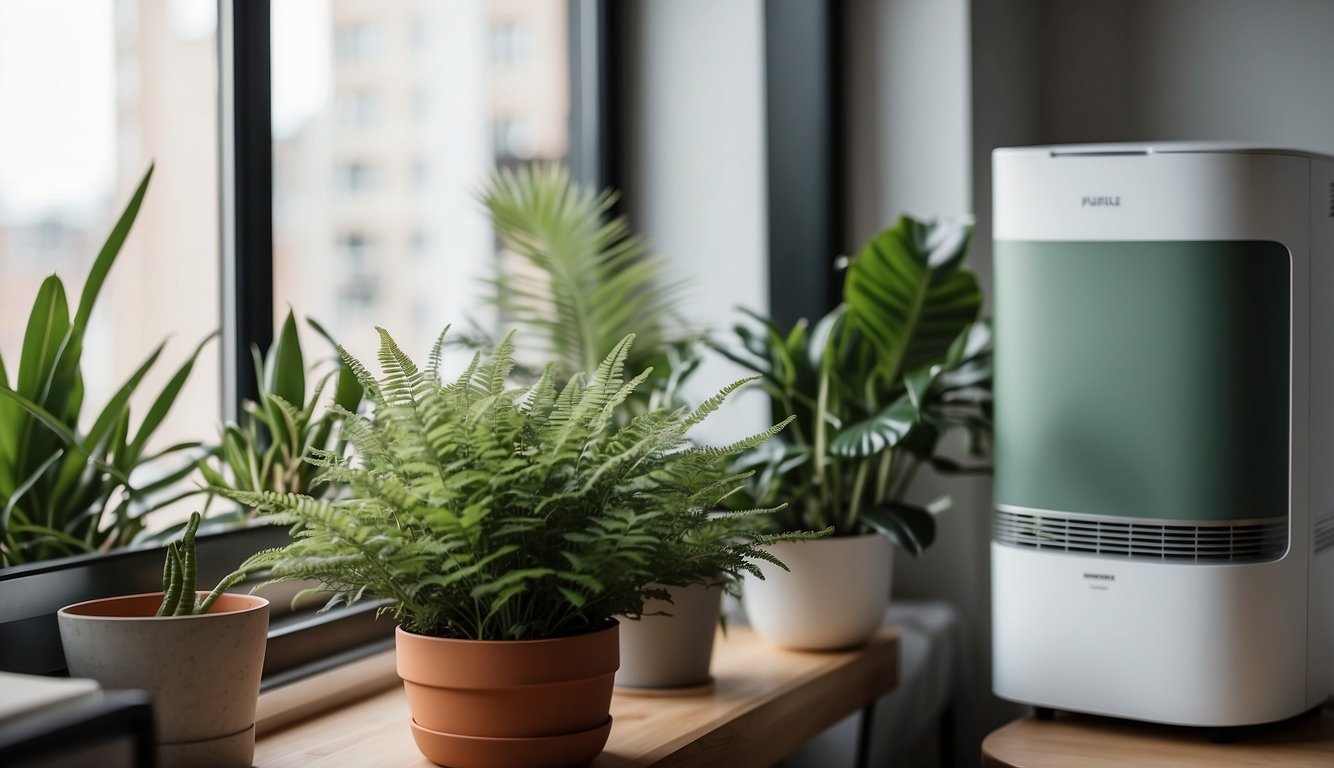
Keeping your air purifier in good condition is essential to ensure it works efficiently and effectively. Here are some tips to help you maintain your air purifier:
Cleaning and Filter Replacement
Cleaning your air purifier regularly is crucial to ensure it works efficiently. We recommend cleaning the exterior of your air purifier with a soft cloth and mild detergent. To clean the filter, you can use a vacuum with a soft brush attachment to remove any dust particles before washing it in soapy water and rinsing it thoroughly under running water. Be sure to dry the filter completely before putting it back in the air purifier.
Replacing the filter is also important to maintain the air purifier’s effectiveness. The HEPA and carbon filters in air purifiers have a limited life span, so be sure to change your filters at the interval suggested by the manufacturer. Some air purifiers have a filter replacement indicator that will remind you when it’s time to replace the filter.
Troubleshooting Common Issues
If you experience any issues with your air purifier, there are a few things you can check before calling for service. First, make sure the air purifier is plugged in and turned on. If it is, check the fan speed to make sure it’s set to the appropriate level. If the air purifier still isn’t working, check the filter to see if it needs to be cleaned or replaced.
If you’ve tried these troubleshooting steps and the air purifier still isn’t working, contact the manufacturer for assistance. They may be able to help you diagnose the issue or provide instructions for repairing or replacing the unit.
By following these maintenance tips, you can ensure your air purifier works efficiently and effectively to keep the air in your apartment clean and healthy.
Conclusion
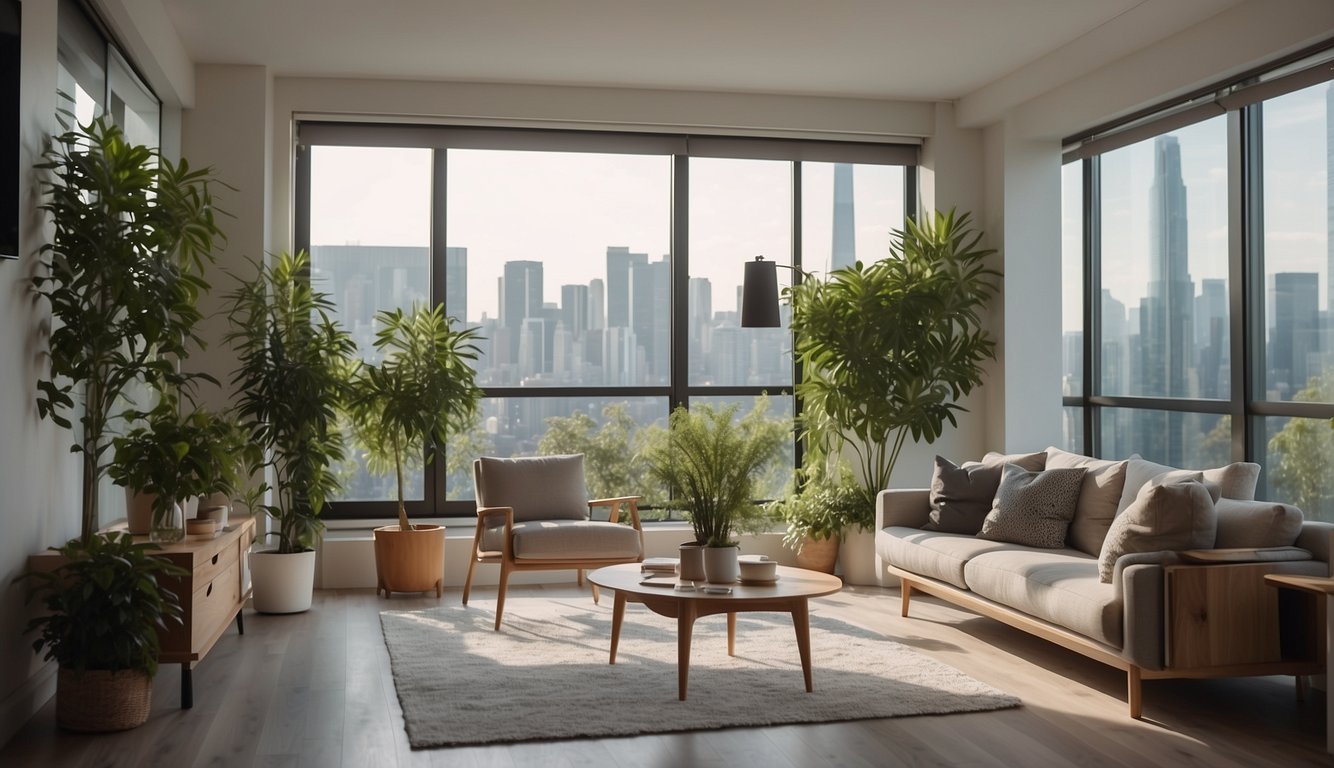
In conclusion, ensuring clean and fresh air in our apartment is crucial for our health and well-being. We have discussed several apartment air purification methods, including the use of air purifiers, proper ventilation, and incorporating indoor plants.
Air purifiers are an effective way to remove pollutants from the air. HEPA filters are the most efficient type of filter and can remove up to 99.97% of particles as small as 0.3 microns. However, it is essential to choose the right size and type of air purifier for your apartment. Portable air purifiers are a great option for those who want to move them from room to room.
Proper ventilation is crucial for maintaining good indoor air quality. Opening windows and doors regularly can help to circulate fresh air throughout the apartment. It is also important to ensure that the ventilation system in the apartment is functioning correctly and is regularly maintained.
Indoor plants are a natural way to purify the air in our apartment. They can remove harmful pollutants such as benzene, formaldehyde, and trichloroethylene. Some of the best plants for air purification include the snake plant, spider plant, and peace lily.
Overall, by implementing these apartment air purification methods, we can ensure that the air we breathe is clean and fresh. It is essential to regularly maintain and clean the air purifiers, ventilation system, and indoor plants to ensure they are working efficiently. By taking these steps, we can improve our indoor air quality and promote a healthier living environment.
Frequently Asked Questions
What are the most effective air purifying plants for apartments?
Plants can be a natural way to improve air quality in apartments. According to a study by NASA, some of the most effective air purifying plants include spider plants, peace lilies, and snake plants. These plants are known for their ability to remove toxins such as formaldehyde, benzene, and carbon monoxide from the air. However, it is important to note that while plants can help improve air quality, they are not a substitute for electronic air purifiers.
Can opening windows improve air quality in small apartments?
Opening windows can help improve air circulation in small apartments, which can lead to better air quality. However, this is not always possible, especially in areas with high levels of air pollution. It is also important to note that opening windows during peak pollen season can worsen allergies and asthma symptoms.
What are the best practices for maintaining indoor air quality in modern apartments?
Some best practices for maintaining indoor air quality in modern apartments include:
- Regularly cleaning and vacuuming floors and surfaces to remove dust and allergens.
- Using natural cleaning products instead of harsh chemicals.
- Avoiding smoking indoors.
- Properly ventilating bathrooms and kitchens to prevent mold growth.
- Changing air filters in HVAC systems regularly.
How often should filters be changed in apartment HVAC systems for optimal air quality?
The frequency of filter changes in HVAC systems depends on several factors, including the type of filter, the size of the apartment, and the level of air pollution in the area. As a general rule, it is recommended to change filters every three months. However, it is important to check the manufacturer’s instructions for specific recommendations.
Are there any natural alternatives to electronic air purifiers for apartments?
In addition to air purifying plants, there are several natural alternatives to electronic air purifiers for apartments. These include activated charcoal, beeswax candles, and Himalayan salt lamps. While these options may help improve air quality, they are not as effective as electronic air purifiers.
What features should I look for when choosing an air purifier for my apartment?
When choosing an air purifier for your apartment, consider the size of the unit, the type of filter it uses, and the noise level. Look for units that are designed for the size of your apartment and have HEPA filters, which are known for their ability to remove small particles from the air. Additionally, consider the noise level of the unit, especially if you plan to use it in a bedroom.

